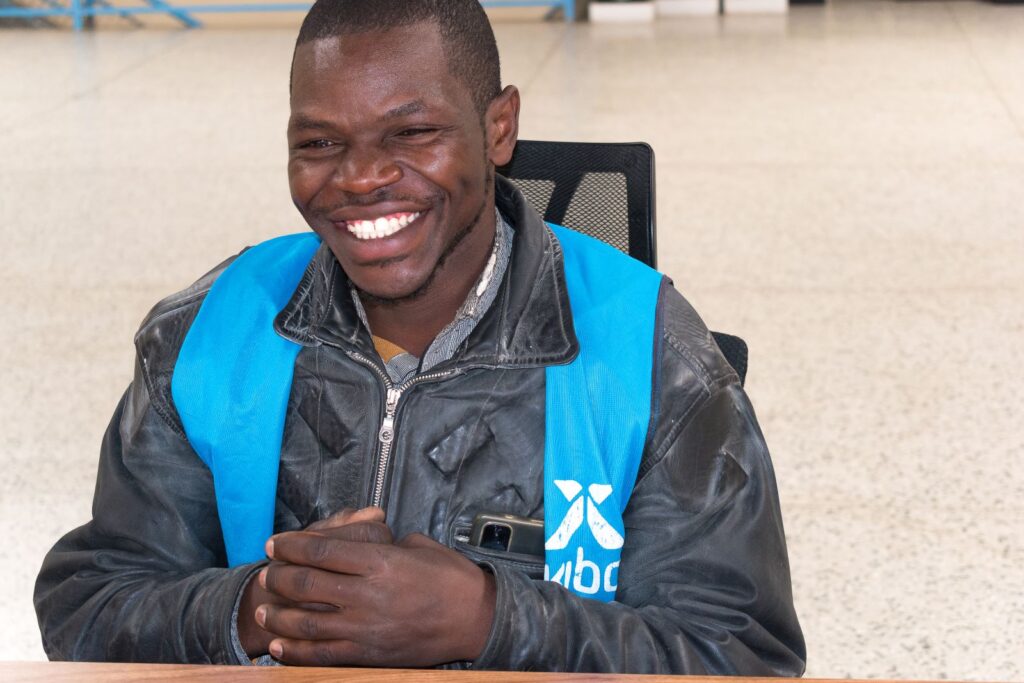Easing Kenya’s Transport Burden: Transforming Mobility with Innovative Electric Motorcycles

270M
Motorcycles worldwide
1.5M
Motorcycles in Kenya
11B tonnes
a global transition to electric motorcycles holds the potential to avert 11 billion tonnes of carbon dioxide emissions, (UNEP)
With the support of FSD Africa Investments (FSDAi) investee Persistent Energy Capital, Kenyan startup EcoBodaa is preparing to enter the billion-shilling boda boda (motorcycle) and delivery bike industry with made-for-Africa electric motorcycles.
In pursuit of eco-friendly and efficient transportation, Kim Chepkoit and Stephen Juma, launched Ecobodaa, a visionary tech startup in Kenya. Ecobodaa’s journey began with experimentation with imported electric motorcycles. Even with modifications, these bikes proved inadequate in replacing their petrol-powered counterparts, especially under the rigorous demands of Kenyan roads. That is where Persistent Energy and other strategic partners stepped in, providing vital financial and technical support.
Support to Ecobodaa has included helping build internal capacity in financial modelling, reporting and in trials leading the reporting of its commercial bike model.
In May 2021, Ecobodaa imported ten electric motorcycles, with five each designated for boda boda and Uber delivery riders. By December 2021, the boda boda motorcycles struggled with heavy loads and rough terrain, while those used by Uber delivery riders, without excessive cargo, continued to operate smoothly.
With Persistent’s support, Ecobodaa began designing motorcycles tailored to the Kenyan market. These bikes feature advanced sensors for data collection, enabling Ecobodaa to enhance its services and products continuously. Notably, they’ve successfully integrated GPS systems and localised battery configurations. Introducing an installment payment model has significantly increased the financial accessibility of Ecobodaa’s electric motorcycles to a wider audience.
Furthermore, Ecobodaa offers customized battery services to meet local demands, allowing riders to conveniently swap depleted batteries for fully charged ones at a minimal cost. As a result, the overall maintenance costs are up to 80% lower than those of petrolpowered motorcycles.
Furthermore, policy changes in Kenya have facilitated a cost-effective importation of electric bikes and related components. Imported parts no longer face delays at the port, considering that local assembly and job creation are part of the equation.
Ecobodaa’s rent-to-own model faces default challenges despite a Kshs 150,000 (USD 1,026) deposit requirement. To tackle this and foster rider loyalty, training and medical insurance are now included in the strategy. This commitment involves contributing Kshs 500 (USD 3.45) monthly to the National Health Insurance Fund (NHIF) for each rider. As an additional incentive, the company has introduced an energy micropayment system, allowing riders to purchase energy affordably and effectively manage their cash flow.
Ecobodaa is leading the shift towards sustainable transportation in Kenya with its locally assembled electric motorcycles. These bikes will enhance Kenya’s transport fleet and reduce pollution while generating jobs and income. With interest from e-mobility players in countries like Cameroon and Zimbabwe, Ecobodaa shows promise for expansion beyond Kenya’s borders.